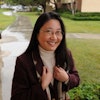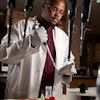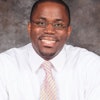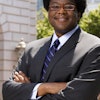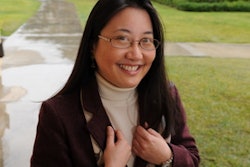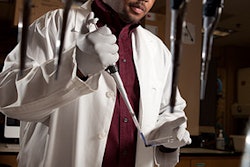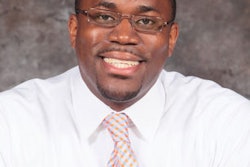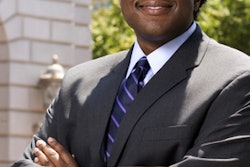Even though Kristian Brown, M.D., Ph.D., got the opportunity to do biomedical research in the Minority Access to Research Careers, or MARC, program as a sophomore at San Diego State University, he still thinks that he decided to be a doctor pretty late in life. “Many of my classmates in medical school were fourth-generation physicians who knew they wanted to become doctors by 5 years old,” he says. “I came into college as a music major.”
Today, Brown is both a transplant surgeon at Detroit Medical Center and an assistant adjunct professor of biomedical engineering at Wayne State University. He has co-written more than 11 scholarly papers, won numerous research awards and earned a Ph.D. in engineering.
“Surgeons and engineers both solve practical problems in three dimensions,” Brown says. “I don’t just want to be a great surgeon; I want to find better ways to do surgery.”
Dr. Scott Gruber, chief of transplant surgery for the Wayne State School of Medicine, says that “Brown has excelled on all fronts and has emerged as one of the most successful research residents in the history of our program.”
Brown is very open about wanting to be on the fast track. He thinks that everybody in medical school is smart, but that his edge is a relentlessly competitive work ethic born out of surviving an extremely rare and devastating neurological disease.
“As a 19-year-old, I went from being able to play endless games of basketball, to suddenly being completely paralyzed with a tube down my throat for about nine months,” he recalls. “I couldn’t do anything at all, and I made a promise to God that, if I ever recovered, I’d do the hardest thing I could possibly imagine. That was going to medical school and getting a doctorate in engineering.”
Brown didn’t find much peer support in his neighborhood outside Los Angeles.
“People wanted to know what’s wrong with you because you were inside studying chemistry over the Thanksgiving holiday,” Brown says. His engineering mindset came from his father who worked as an electrician and fixed his own cars. “But the greatest thing Dad did was literally taking me and other kids in my family out and away from the neighborhood. We would pack ourselves into his van and drive thousands of miles learning about the much bigger world out there.”
At San Diego State, Brown found support and access to research opportunities through biology professor Paul Paolini and the MARC program. “When you meet Dr. Paolini it’s just immediately clear how much he loves teaching,” Brown says. Paolini says that a big advantage of putting minority students into the laboratory is that “research really engages students’ hearts and minds because it’s not about passing or failing tests; it’s about finding solutions.”
Brown feels fortunate to have found two mentors for the different facets of his career.
“Dr. Gruber is a giant in organ transplant research,” Brown says. “After I became a doctor, he taught me how to be a medical academic; how to collect data and present it as a scientist.” He credits Dr. Miguel West for showing him the meticulous craftsmanship and creative problem solving involved in being an outstanding surgeon.
Many medical procedures mean the difference between a patient living and dying. Yet, Brown still believes that organ transplants have a special spiritual significance.
“Many people ask themselves why did I get a chance at life? However, people who receive organ transplants get two chances at life. And, their second chance always requires a sacrifice. Even when the donor does not need to die, like donating one kidney, he or she must still make a major sacrifice. I remind my patients that they have a moral obligation to do something special with that second chance.”
Title: Transplant surgeon, Detroit Medical Center; adjunct assistant professor of biomedical engineering, Wayne State University College of Engineering
Education: Ph.D., biomedical engineering, Wayne State University; M.D., University of California, San Diego; B.S., cell and molecular biology/chemistry, San Diego State University
Age: 33
Career mentors: Scott Gruber, chief of transplant surgery for Wayne State Medical School; Miguel West, surgeon, Detroit Medical Center
Words of wisdom: “Compassion is the bridge from a wound being treated to a person being healed.”

